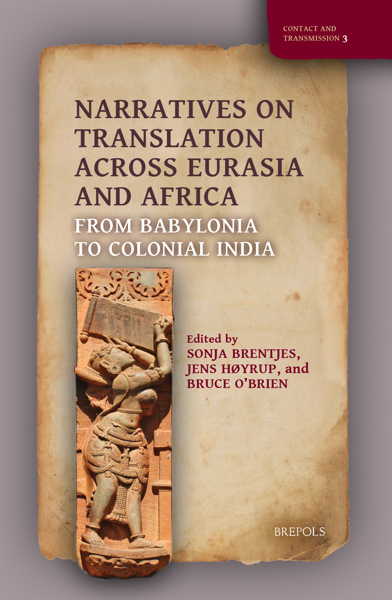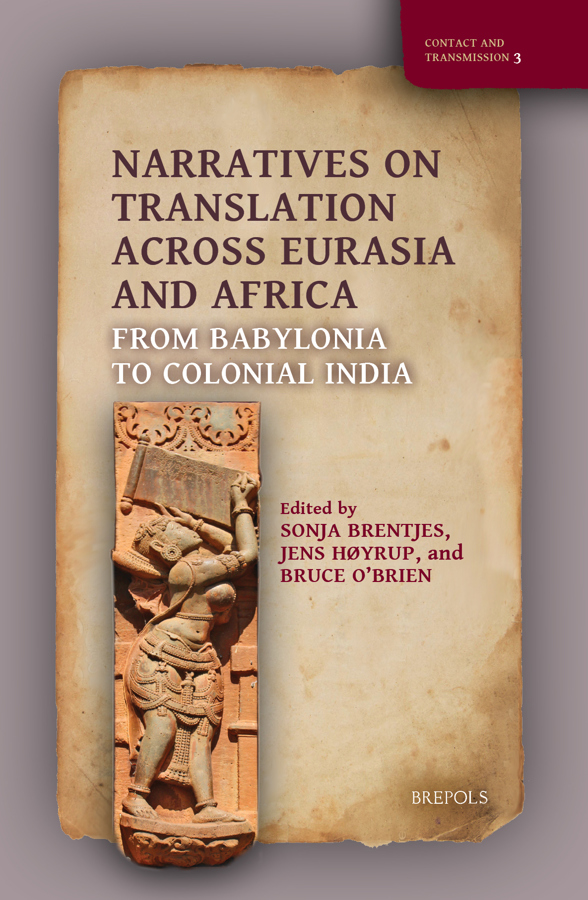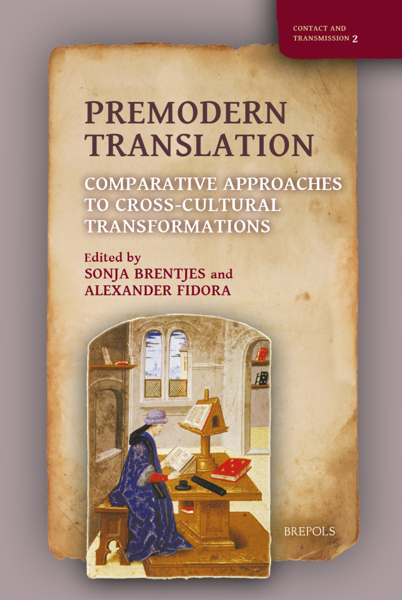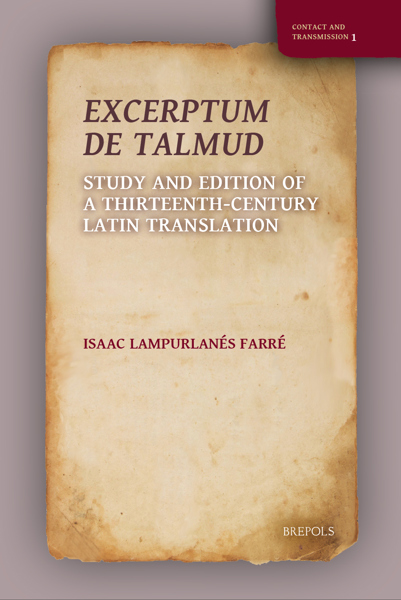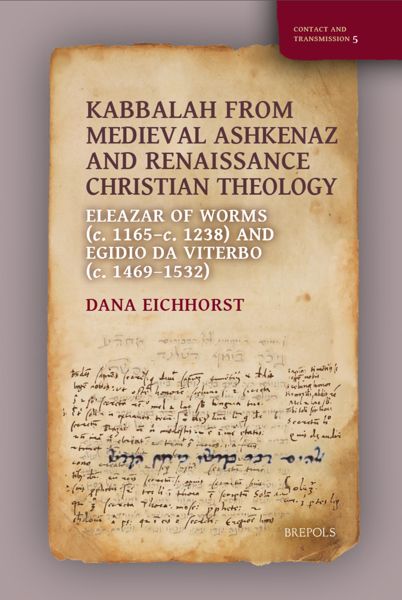
Narratives on Translation across Eurasia and Africa
From Babylonia to Colonial India
Sonja Brentjes, Jens Hoyrup, Bruce R. O'Brien (eds)
- Pages: 406 p.
- Size:156 x 234 mm
- Illustrations:2 b/w, 5 tables b/w.
- Language(s):English
- Publication Year:2022
- € 110,00 EXCL. VAT RETAIL PRICE
- ISBN: 978-2-503-59489-7
- Hardback
- Available
- € 110,00 EXCL. VAT RETAIL PRICE
- ISBN: 978-2-503-59490-3
- E-book
- Available
The book disentangles histories of translations from their treatment in specialized intellectual fields, making the point that histories of translations are not merely sub-categories of the histories of pre-modern sciences, religion, law, or literature but are in fact histories of cultural practices that cut synchronically and diachronically through the entire textual fabric of the investigated societies.
“All told, this volume seems likely to interest scholars who specialise in translation studies, the history of science, and the topics addressed in specific chapters.” (Patrick Ball, in Parergon, 41/1, 2024, p. 342)
Sonja Brentjes is a retired historian of science in Islamicate societies and Christian Europe.
Jens Høyrup is a professor emeritus; history of Mesopotamian and European medieval mathematics and pre-Modern practitioners’ mathematics.
Bruce O’Brien is a historian of England from the tenth to the twelfth centuries, researching principally medieval translation practices and law.
What has driven acts of translation in the past, and what were the conditions that shaped the results? In this volume, scholars from across the humanities interrogate narratives on the process of translation: by historical translators ranging from ancient Babylonia to early modern Japan and the British Empire, and by academics from the nineteenth to the twentieth centuries who interpreted these translators’ practices.
In Part 1 the volume authors reflect on the history of the approaches to the phenomenon of translation in their specific fields of competence in order to learn what shaped the academic questions asked, what theoretical and practical tools were deployed, which arguments were privileged, and why certain kinds of evidence (but not others) were thought to be the basis for understanding the function and purpose of all translation performed in a given culture. Part II explores how translators and authors from antiquity to modern times described their own motivations and the circumstances in which they chose to translate. In both parts, the contributors disentangle histories of translation from the specialized intellectual fields (such as science, religion, law, or literature) with which they have been bound in order to make the case that we understand translation best when we take into account all cultural practices and translation activities cutting synchronically and diachronically through the entire societal fabric.
Introduction — Sonja Brentjes, in cooperation with Jens Høyrup and Bruce O’Brien
Part 1: Observer Narratives
Scholarly Translation in the Ancient Middle East: Ancient and Modern Perspectives — C. Jay Crisostomo
Interdisciplinary Interactions: Septuagint Studies, Classics, and Translation Studies — Benjamin G. Wright III
A Plurality of Voices: Fragmented Narratives on Syriac Translations — Matteo Martelli
Re-visiting the Translation Narratives: The Multiple Contexts of the Arabic Translation Projects — Miriam Shefer-Mossensohn
Philosophical Pahlavi Literature of the Ninth Century — Götz König
Changing Perceptions in Modern Scholarship on Tangut Translations of Chinese Texts — Imre Galambos
Biblical Theology, Scholarly Approaches, and the Bible in Arabic — Miriam Lindgren Hjälm
Translating inside al-Andalus: From Ibn Rushd to Ibn Juljul — Maribel Fierro
Part 2: Participant Narratives
From Opheleia to Precision: Dionysius the Areopagite and the Evolution of Syriac Translation Techniques — Emiliano Fiori
Wisdom in Disguise: Translation Narratives and Pseudotranslations in Arabic Alchemy — Christopher Braun
Philology and Polemics in the Prologues to the Latin Talmud Dossier — Alexander Fidora
Faraj ben Salīm of Agrigento: Translation, Politics and Jewish Identity in Medieval Sicily — Lucia Finotto
Practices of Translation in Medieval Kannada Sciences: ‘Removing the Conflict between Textual Authority and the Worldly’ — Eric Gurevitch
The Trope of Sanskrit Origin in Pre-Modern Tamil Literature — Eva Wilden
Ibn al Quff the Translator, Ibn al-Quff the Physician: Translation and Authority in a Medieval Commentary on the Hippocratic Aphorisms — Nicolas Carpentieri
Isaac Aboab da Fonseca’s Preface to his Hebrew Translation of Abraham Cohen De Herrera’s Puerta del Cielo — Federico Dal Bo
Mahometism in Translation: Joseph Morgan’s Version of Mohamad Rabadán’s Discurso de la Luz (1723–1725) — Teresa de Soto
The Possibility of Translation: A Comparison of the Translation Theories of Ogyū Sorai and Ōtsuki Gentaku — Rebekah Clements
The Hermeneutics of Mathematical Reconciliation: Two Pandits and the Benares Sanskrit College — Dhruv Raina
Index
